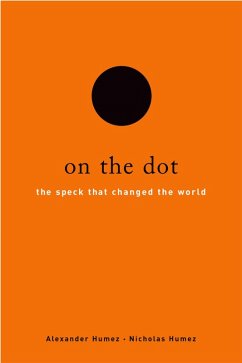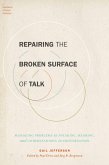Despite the humble origins of its name (Anglo Saxon for "the speck at the head of a boil"), the dot has been one of the most versatile players in the history of written communication, to the point that it has become virtually indispensable. Now, in
On the Dot, Alexander and Nicholas Humez offer a wide ranging, entertaining account of this much overlooked and minuscule linguistic sign. The Humez brothers shed light on the dot in all its various forms. As a mark of punctuation, they show, it plays many roles--as sentence stopper, a constituent of the colon (a clause stopper), and the ellipsis (dot dot dot). In musical notation, it denotes "and a half." In computerese, it has several different functions (as in dot com, the marker between a file name and its extension, and in some slightly more arcane uses in programming languages). The dot also plays a number of roles in mathematics, including the notation of world currency (such as dollars dot cents), in Morse code (dots and dashes), and in the raised dots of Braille. And as the authors connect all these dots, they take readers on an engaging tour of the highways and byways of language, ranging from the history of the question mark and its lesser known offshoots the
point d'ironie and the interrobang, to acronyms and backronyms, power point bullets and asterisks, emoticons and the "at-sign." Playful, wide-ranging, and delightfully informative,
On the Dot reveals how thoroughly the dot is embedded in our everyday world of words and ideas, acquiring a power inversely proportional to its diminutive size.
Dieser Download kann aus rechtlichen Gründen nur mit Rechnungsadresse in A, B, BG, CY, CZ, D, DK, EW, E, FIN, F, GR, HR, H, IRL, I, LT, L, LR, M, NL, PL, P, R, S, SLO, SK ausgeliefert werden.









